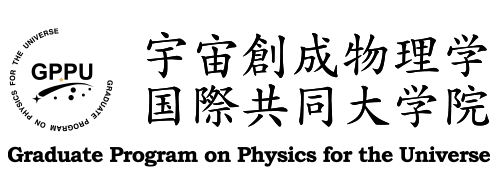GPPU Seminar
What is Density Functional Theory for nuclei, and why does it matter for astrophysics and particle physics?
Gianluca Colò
(University of Milano and INFN, Italy)
Date
15:00-17:00, April 27th, 2018Place
Room N204, Science Complex C (H-04) mapAbstract
Density Functional Theory (DFT) is based on the rigorous Hohenberg-Kohn theory, that has been first introduced for electronic systems but holds for other fermionic systems like atomic nuclei. Currently, DFT has reached a high level of sophistication in the nuclear case as well, and represents a suitable tool for a quantitative and self-consistent description of the bulk nuclear properties (like masses, radii and deformations). Furthermore, time-dependent calculations within the same framework also allow the description of nuclear collective motion. In this lecture, we introduce these topics by assuming only a previous knowledge of general quantum mechanics, and basic nuclear phenomenology. Then, we move to applications that are of interest for other domains on physics like the title suggests. In fact, DFT has been recently applied to the study of nuclear properties that involve either isospin (in other words, the neutron-proton imbalance) or spin and isospin on equal footing. These recent studies impact on our understanding of neutron stars, of the synthesis of heavy elements in the Universe, of single and double-beta decay, of the elusive nature of neutrinos, and of tests of the Standard Model of particle physics. We will mention these important links through the review of few selected works.Point
GSP 1Contact: Yusuke Tanimura (tanimura [at] nucl.phys.tohoku.ac.jp)
